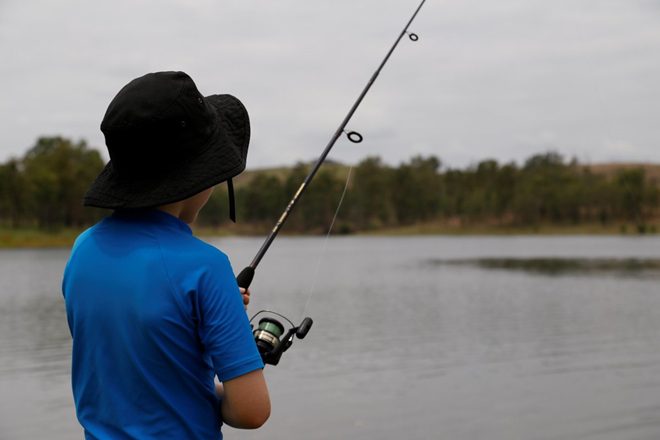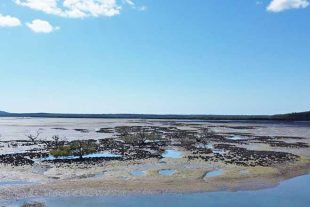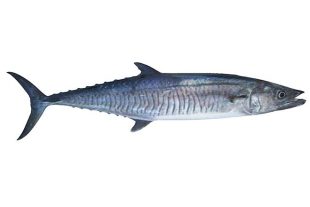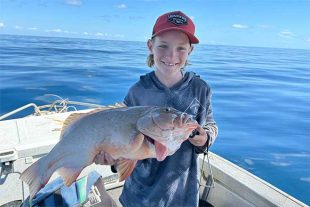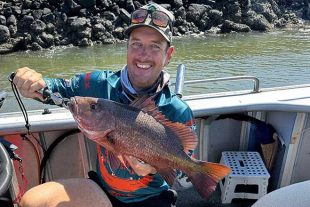CREATING more sustainable fisheries for future generations is at the heart of a discussion paper released for public comment by the Queensland Government.
Minister for Agricultural Industry Development and Fisheries Mark Furner said anyone with an interest in Queensland’s world-famous fisheries could now have their say on proposed amendments to the Fisheries Regulation 2008.
“The Queensland Government is committed to leaving a legacy of a sustainable fishery for our children and grandchildren,” Mr Furner said. “Both the commercial and recreational fishing sectors have a strong vested interest in maintaining healthy fish populations, and we are right behind them on that. We have been consulting on landmark reforms for over two years and the consistent message that comes through to us is we can’t just keep things how they are. We have listened, and this discussion paper is one more chance for fishers to have their say on these proposed changes.”
Member for Lytton Joan Pease said fishing was a way of life for many Queenslanders.
“Whether you make a living from great-tasting Queensland seafood or just love dropping a line in every now and then, it is important you have a say on these regulations,” Ms Pease said. “There is so much to enjoy along Queensland’s coastline, and these reforms are about making sure Queenslanders can continue to do that for decades to come.”
Mr Furner said the proposed amendments focus on long-term sustainability and profitability; urgent sustainability actions to take the pressure off snapper and pearl perch; standardising fishing rules, supporting compliance and reducing red tape. “The discussion paper outlining the proposed amendments is available until Friday, July 19, 2019 for all fishing industry stakeholders to provide feedback on,” he said.
“Stakeholders are encouraged to visit fisheries.qld.gov.au to read to discussion paper, see the results of previous consultation and provide feedback on the proposed amendments.”
Key changes include:
- Splitting fisheries into regions;
- Establishing sustainable catch limits for crab, east coast inshore and trawl and snapper and pearl perch;
- Allocating quota and effort units to individuals;
- Adjusting size limits from pearl perch and king threadfin;
- Introducing a one-month seasonal closure for snapper and pearl perch to rebuild overfished stocks;
- Reducing the mud crab in-possession limit from 10 to seven;
- Introducing boat limits for priority black market species;
- Introducing a new general possession limit of 20 for any species that doesn’t have a current limit; and
- Banning lightweight crab pots that ‘ghost fish’.
North Queensland second-generation trawl operator Neil Mogensen, with 25 years’ experience in trawl fisheries, said the proposed reforms would be a huge step forward.
“The east coast trawl fishery has been sitting stagnant with no direction for almost 10 years,” Mr Morgensen said. “I believe the package that has been put forward will give industry a clear direction that outlines future access to sustainable stocks. This will help industry influence management arrangements for better results.”
Gulf of Carpentaria crab fisher Ben Day said the introduction of quotas was world’s best practice and would bring economic viability back to crab fishers.
“The value of crabs in recent years has driven up the number of crabbers, and with no catch limits this means poor profitability for those sharing the resource,” Mr Day said. “While some fishers may have to invest, they can do so with confidence of the fishery being economically viable into the future.”
Mr Furner said the proposed changes were the result of a comprehensive consultation process over the past two years as part of the Sustainable Fisheries Strategy.
“The Sustainable Fisheries Strategy is paving the way for Queensland to have a world-class fisheries management system,” Mr Furner said. “In January 2019, the Queensland Government released the Directions Paper for the fisheries reforms, which outlined the direction for reforming some of the state’s most important fisheries – the trawl, crab and east coast inshore fisheries. All feedback has been considered by the relevant working groups and the Sustainable Fisheries Expert Panel and a number of changes have been made as a result of feedback. Those changes are outlined in the discussion paper, which is now available for public comment.”
Feedback will inform the remake of the Fisheries Regulation 2008, which is due to be completed by September 1, 2019.
 Bush ‘n Beach Fishing Magazine Location reports & tips for fishing, boating, camping, kayaking, 4WDing in Queensland and Northern NSW
Bush ‘n Beach Fishing Magazine Location reports & tips for fishing, boating, camping, kayaking, 4WDing in Queensland and Northern NSW

